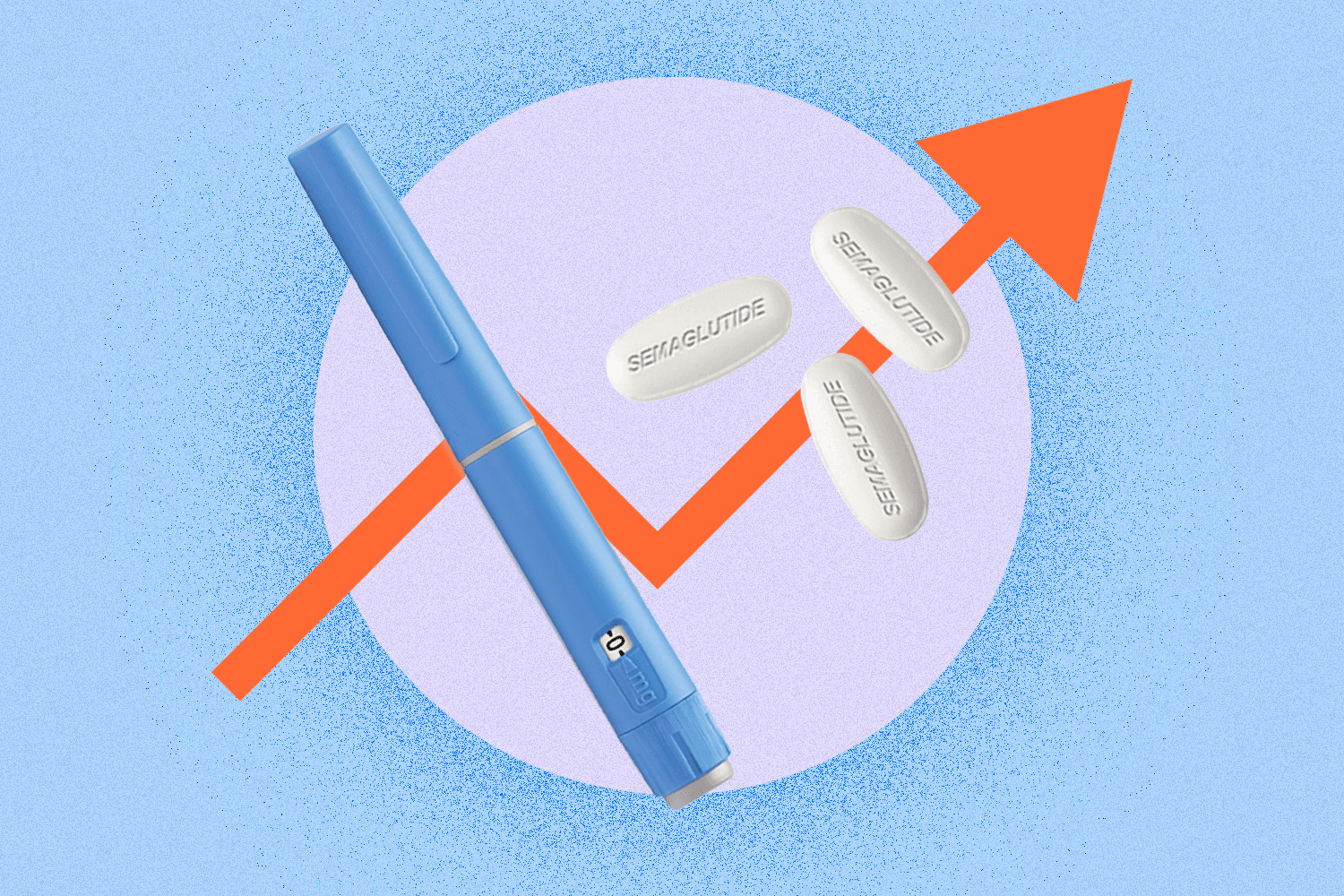Doctors using AI found it may be unnecessary to stop diabetes medications before surgery
Some patients can keep taking their meds, the study found.

Amelia Kinsinger
• 5 min read
For almost a year, many hospitals have followed guidance the American Society of Anesthesiologists (ASA) issued last June to withhold a dose of certain diabetes medications before surgery because of concerns that they could cause health complications. But a new study released Tuesday suggests that stopping the medication may not always be necessary.
The study, published in the Journal of Diabetes, Obesity, and Metabolism, found that taking glucagon-like peptide-1 (GLP-1) agonists the week of an elective surgical procedure did not increase patients’ risks for at least six potential peri- and postsurgical complications, including gastroparesis, respiratory failure, and death.
Researchers from the Mills-Peninsula Medical Center, Stanford University, the University of Miami, Thomas Jefferson University and the Diabetes Technology Society partnered with data company Atropos Health and used artificial intelligence (AI) to analyze millions of anonymous patient records from when GLP-1s were first introduced in January 2015 to April 2023.
GLP-1 may sound familiar: That’s because it’s the drug classification for the Ozempics and Mounjaros of the world, which have skyrocketed in off-label use for weight loss over the past five years. The original ASA guidance does not differentiate between patients who were taking the medications for diabetes versus weight loss, but the study only looked at patients with diabetes, Klonoff said.
Beyond those two superstar drugs, GLP-1s encompass at least 10 other diabetes medications, like Eli Lilly’s Trulicity and Novo Norodisk’s Rybelsus.
The drugs’ popularity right now makes fact-checking this guidance even more important, David Klonoff, the medical director of the Diabetes Research Institute at the Mills-Peninsula Medical Center, who led the study, said. Without taking these medications, patients retain less control over their blood sugar levels and can experience negative symptoms as a result, he said.
The study indicates that doctors can be more judicious about which patients should stop taking the medications and which patients may be worse off without them, he said.
“I was not convinced that there were these problems when people used the drugs. I was also convinced that there was a risk to people taken off of the diabetes drug at the last minute before surgery,” Klonoff said. “I was suspicious, but I didn’t really know. So I went about collecting evidence.”
An AI study
The study fell in line with healthcare industry trends as more providers, physicians, and systems utilize AI to boost efficiency—and researchers are now following suit. Automation made it possible to accomplish this study much faster than it may have gone otherwise, Brigham Hyde, co-founder and CEO of Atropos Health, said.
Navigate the healthcare industry
Healthcare Brew covers pharmaceutical developments, health startups, the latest tech, and how it impacts hospitals and providers to keep administrators and providers informed.
The AI scored people in similar risk categories and condensed records into two groups—those who used GLP-1s before surgery and those who did not—for comparison. Using AI to accomplish this research allowed for better matches between different cohorts, Hyde said.
“We only compare like to like, and doing that correctly—it’s actually really difficult,” Hyde said. “But with our system, it’s fully embedded and automated into the process.”
Klonoff and his colleagues had access to more than 130 million anonymous patient records through Atropos, and they looked at the outcomes of those who had undergone nine types of elective surgeries that the researchers decided were the most common and required general anesthesia, Klonoff said.
The surgeries included appendectomy, coronary artery bypass grafting, hernia repair, hip replacement, hysterectomy, prostatectomy, tonsillectomy, thyroidectomy, and spinal fusion.
The researchers also picked the six most likely complications from continuing to take GLP-1s: slowed digestion, aspiration pneumonia (when food or liquid is inhaled into the lungs), respiratory failure, postoperative hypoglycemia, death within a week of surgery, and death within a month of surgery.
“We felt that if the drug was causing any problems, it would be one of those six. We used propensity score-matched groups, and of those groups, there was no increased risk for each or any of those six complications in the people who used a GLP-1 compared to people who didn’t,” Klonoff said.
Klonoff added that many patients go in for surgery and may not report they’re on GLP-1s until the preoperative exam, which prompts hospitals following the original ASA guidance to postpone or even cancel the procedure.
“If it was truly protecting people, you might say, ‘Hey, it’s worth it. Everybody suffers, but you get safety at the other end,’” Klonoff said. “But if you don’t get safety at the other end, all you’re doing is just creating problems for the whole healthcare system. And what is at the other end, obviously, is that you have poor control of glucose by the time you have your surgery.”
Navigate the healthcare industry
Healthcare Brew covers pharmaceutical developments, health startups, the latest tech, and how it impacts hospitals and providers to keep administrators and providers informed.